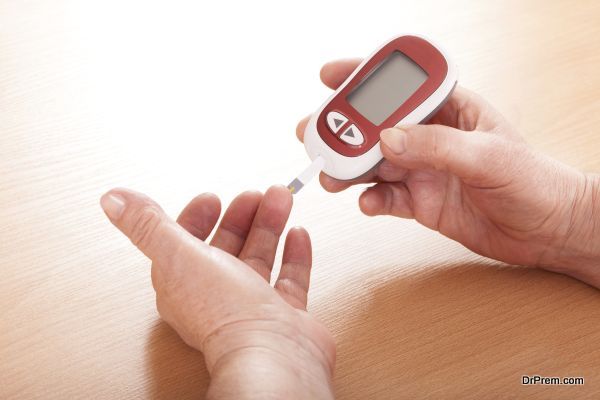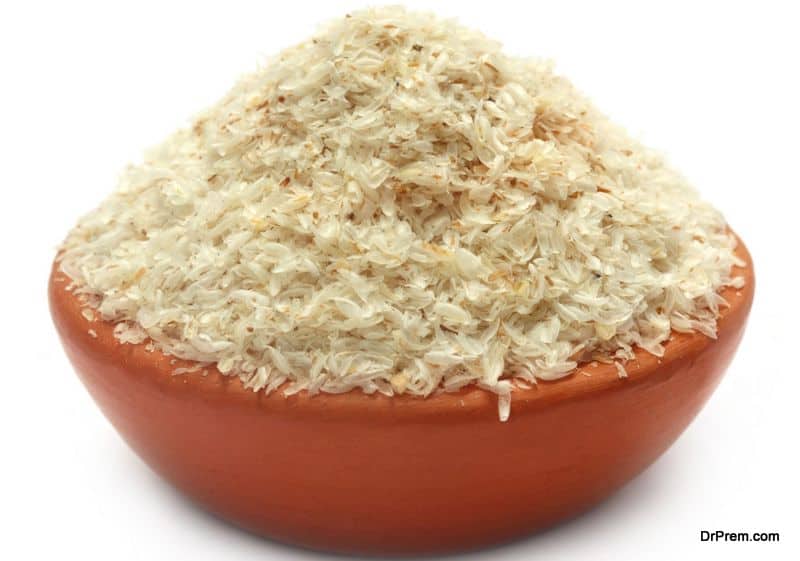Psyllium is a fibrous plant and each plant has lot of seeds which have a gel like coating. Psyllium husk is derived from outer covering of this seed. The husk of psyllium is laxative in nature and is popular for its health benefits. It is a soluble fiber which helps in regulating irritable bowel syndrome, blood sugar level and lowering cholesterol level. The consumption of psyllium husk has certain mild adverse effects too such as stomach pain, intestinal blockage, fever, nausea, etc. So it is always better to consult your doctor before taking psyllium husk. Pregnant women and children should avoid consumption of psyllium husk. Let us have a look at a few significant Psyllium husk side effects.
10 Psyllium husk side effects that you should not ignore:
1. Stomach irritation

There are bacteria present in our digestive tract which are responsible for digestion. The fibrous nature of husk can sometimes react negatively with these bacteria causing some irritation to the digestive tract. People with digestive disorder are advised to stay off this husk. It is also recommended to drink a lot of water with the intake of psyllium husk.
2. Blockage of intestines

Hence it is always recommended to consume a lot of fluids and water if you are taking psyllium husk in your daily regime. Though psyllium husk is used for treating inefficiency of bowel movement, but in this case, it would do more harm than good. See your doctor immediately if you develop any of these symptoms after consuming the husk.
3. Flu like symptoms

4.
Allergic reaction

Sometimes our body fails to recognize certain substances which cause anaphylactic shock or severe allergy conditions like chest tightness or choking, breathing difficulties, congestion of nose or running nose, hives, chills, skin rash, itching etc.
These allergies could be mild or severe as the immune system over reacts to the protein present in medicinal husk releasing high levels of histamines. If you experience a situation like this, then stop the usage of psyllium husk and seek medical help.
5. Medical absorption

If you are prescribed for certain medication then it is better to keep a gap of 2 to4 hours before or after taking psyllium husk. Some of the medicines which have a history of getting affected by psyllium husk are diabetic medication, antidepressants, heart medicines, blood thinning compounds, anti-seizure drugs, cholesterol lowering drugs etc. Take your doctor’s advice if you are on any of these medications.
6. Low blood sugar

This results in lowering high blood sugar level. But psyllium husk intake can adversely affect people with low blood sugar, as it can bring down the blood sugar level further, which may cause a health concern.
7. Gas and Flatulence

If this gastric disorder persists and lasts for a long period, then reduce its consumption and consider consulting a doctor. It is also important to drink a lot of water and fluids with psyllium husk intake. You could also start on a low dose of psyllium husk and monitor its familiarity with the intestinal bacteria and gradually increase its consumption.
8. Skin rash and eczema

These patches have a tendency to disappear and then re-appear. Finally, if it becomes more severe, then it may turn into eczema. You need to see a doctor if the problem aggravates.
9. Heart palpitation – one of the worst psyllium husk side effects

These palpitations are caused by a chemical reaction triggered by improper function of the immune system of the body. When the body is unable to associate with the proteins present in the husk, this situation gives rise to low blood pressure and increased heart rate. If you observe any of these symptoms, then remember its time you take your doctor’s advice.
10. Developing adherence:







